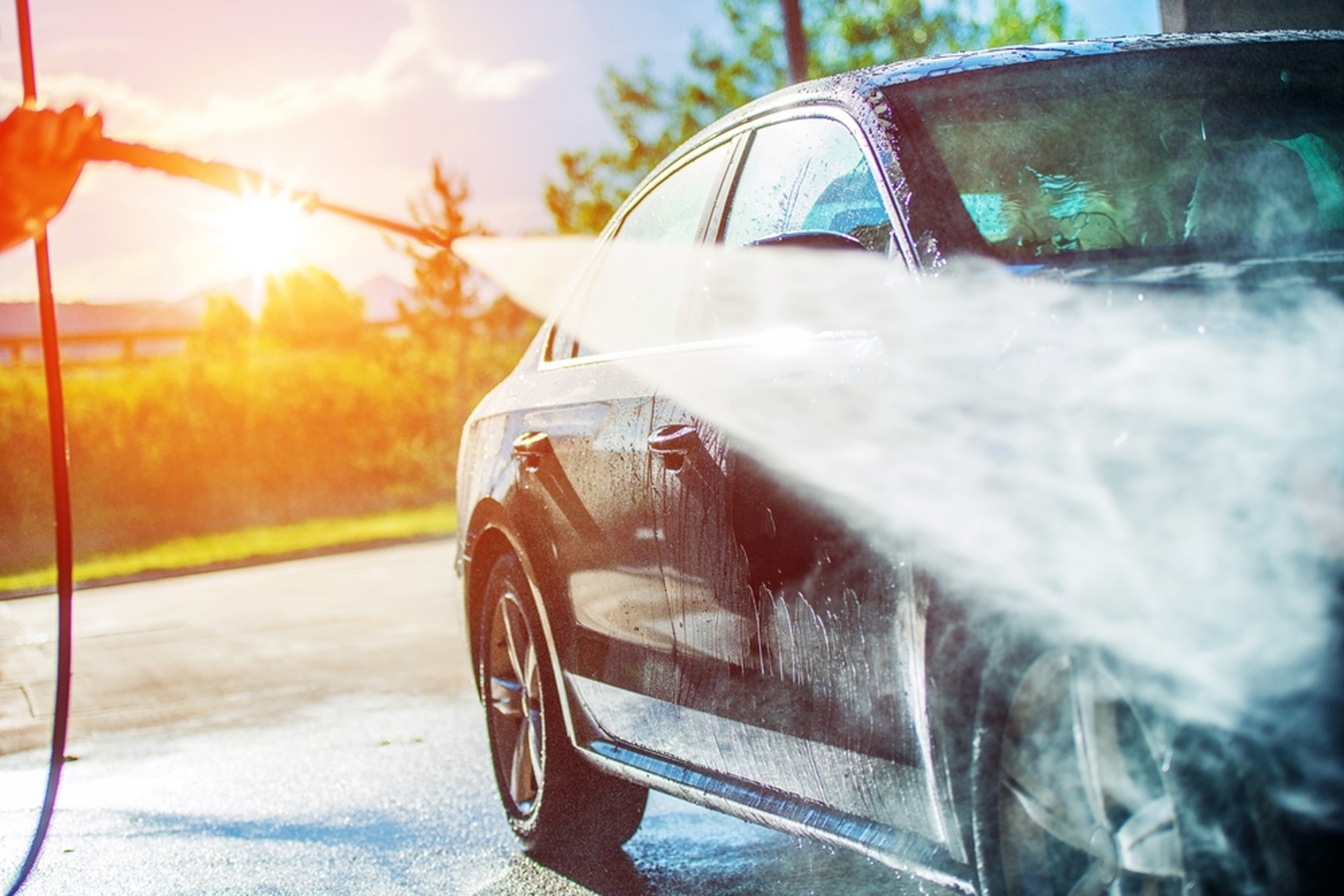What to Do After Buying a Used Car: A 5-Step Checklist
Follow this step-by-step checklist after buying a used car so you don't miss a single detail.
 Shutterstock
Shutterstock
You just purchased a used car, and you need to know the next steps to finish the transaction and drive off as the new legal owner.
Gain peace of mind by closely following this checklist for what to do after buying a used car, starting when you're still in the parking lot or driveway of its previous owner.
1. Transfer the Title
Transferring a car title involves two tasks, and both the seller and the buyer need to be involved.
Before leaving a dealership or finishing a private-party transaction, make sure a clear title is transferred over to you. That means there are no liens against the car title—if there are, then the lender must be part of the transfer—and everyone on the car title has signed it over to you.
Depending on your state, you might need to fill out an odometer reading, the sales price, and the buyer's contact information. Some states even require the seller's signature to be notarized, so make sure you know what's required before concluding the deal. Requirements to release the title are usually printed plainly on the title itself.
2. Obtain Car Insurance
One of the most important things to do after buying a used car, have it insured at least to your state's minimum car insurance requirements. Most states (except Virginia and New Hampshire) require you to have car insurance to drive, but insurance is also important because:
- It helps protect drivers from financial liability in the event of an accident
- It helps protect the car's value, which protects both the owner and lenders you still owe money to
- Where required, it allows you to register your vehicle and meet all state laws
It's important to obtain insurance as quickly as possible (even before you leave the dealership) because you're at risk of getting into a car accident anytime you're driving the vehicle.
3. Get the Car Inspected
Wondering why anyone would do a post-purchase vehicle inspection?
For starters, some used cars come with a warranty and a post-purchase inspection can highlight needed repairs that may already be covered. It can also bring up other maintenance issues to address sooner rather than later. A comprehensive inspection done right after purchase can uncover issues during a period when you might be able to return the car for unforeseen and severe problems.
Lemon laws that allow you to return a car found to be in worse condition than was advertised are typically only for new car purchases. However, seven states have used car lemon laws:
- California
- Connecticut
- Massachusetts
- Minnesota
- New Jersey
- New Mexico
- New York
Before you can register your vehicle, you'll also need to make sure it passes state inspection and emission requirements. Inspections ensure a vehicle passes minimum safety requirements, and an emissions test ensures the car passes environmental and pollution standards.
4. Register Your Vehicle
If a dealership didn't already register your car for you, you'll head to your Department of Motor Vehicles (DMV) to register the car in your name.
Each state's registration requirements vary but will likely include:
- A bill of sale
- A car title signed over to you
- An insurance policy document
- A driver's license or government-issued photo ID card
- Proof of address or residency in the state (such as a utility bill)
- A passed inspection and emissions document
- Lien information (from your car loan, if applicable)
- Lien release information (from the previous owner's car loan, if applicable)
Expect to receive a registration paper to keep in your car at all times, a license plate and a sticker showing when you need to renew your registration.
5. Pay Sales Tax Due
State sales tax requirements for purchasing a used vehicle vary. For example, some states have no sales tax requirement if purchased from a private seller. Or, in some states, car sales tax is calculated after the value of a trade-in car is subtracted from the sale price.
If you purchase from a private seller or a dealership that doesn't pay this for you, contact your local county tax office or DMV for sales tax obligations (including the deadline from the date of sale to pay it).
Know that you might owe the following:
- Sales tax
- Excise tax
- Title tax
- Title transfer fees
It's easy to get caught off guard with the deadlines, paperwork and fees involved with purchasing a used vehicle. Instead, work through this checklist of what to do after buying a used car and you'll stay on top of all the paperwork, fees and other obligations post-purchase.
Written by humans.
Edited by humans.
 Amanda Grossman
Amanda GrossmanI prefer used cars, having never actually purchased a brand-new car in 38 years. What I love to teach and talk about are the finances behind your car-buying decision — like knowing what kind of car fits into your budget, maintaining a car so that it can perform well, longer, and cutting down car ownership costs.
Related articles
View more related articles